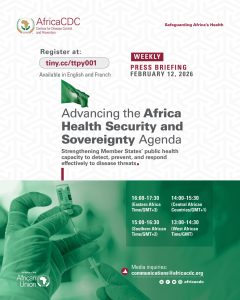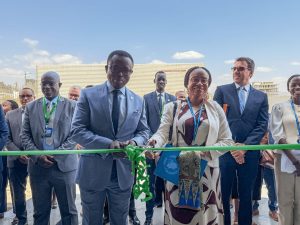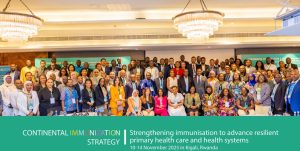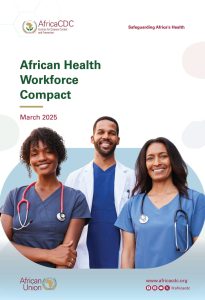Community Health Worker (CHW) programmes in Africa are often hamstrung by two main problems: dependency on external funding and financial sustainability. By integrating CHWs into its primary healthcare system, Rwanda has institutionalised their role as formal health workers, addressing workforce shortages while addressing remuneration through innovative solutions.
Rwanda’s Ministry of Health expanded its community health programme beginning in 2007, eventually placing four trained CHWs in every village in the country by 2009. It has been one of the successful strategies to alleviate the shortage of formal healthcare workers and promote access to health services in communities.
“Rwanda has established cooperatives for Community Health Workers (CHWs) to engage in income-generating activities, creating a revenue stream to compensate them. This approach not only empowers communities economically but also provides a sustainable mechanism for remunerating CHWs,” said Thaddee Niyoyitungira, Program Lead for Community Health Systems at Africa CDC.
Another feature has been the Community-Based Health Insurance (CBHI), a key attribute of Rwanda’s health financing success, which has achieved high enrollment—more than 90% of the total population—and equitable access to healthcare services. The system pools resources and reduces out-of-pocket healthcare expenses for citizens.
Community Health Workers serve as front-line workers in Africa, holding the potential to support universal health coverage and better health for vulnerable communities. As such, sustainable health financing is essential to addressing Africa’s over-reliance on donor funding, which often leads to programme fragmentation, duplication of efforts, and disease-specific health programs that hinder integration.
“Without sustainable financing, programmes risk collapse when donor priorities shift or funding ends. CHWs may remain unsupported or undervalued, limiting their effectiveness,” said Niyoyitungira. “Investing in sustainable health financing fosters health system resilience, ensuring that CHWs can deliver essential services as part of primary healthcare, a cornerstone for achieving universal health coverage,” he added.
The Africa Centres for Disease Control and Prevention (Africa CDC), in partnership with Rwanda Cooperation, conducted an Experiential Learning Program on Sustainable Health Financing for Community Health Worker (CHW) Programs with policymakers, Members of Parliament, and technical experts from six African Union Member States: Egypt, Gabon, Côte d’Ivoire, Sierra Leone, Tanzania, and Zambia in Kigali from November 25–29, 2024.
“This initiative reflects the importance of collaboration and knowledge-sharing in addressing the pressing challenges of community health financing,” said Patricie Uwase, CEO of Rwanda Cooperation. “Rwanda is proud to share its experiences while learning from our peers to build stronger, more sustainable health systems across Africa.”
Jointly organised by the Division of Community Health Systems and the Health Economics Program of Africa CDC, the initiative aimed to deepen participants’ understanding of sustainable health financing models, foster inter-country collaboration, and develop actionable strategies to strengthen financing for community health systems.
“While Rwanda’s model is innovative, its adaptability depends on a country’s specific socioeconomic and political context. However, its principles—community empowerment, cooperative-based income generation, and inclusive financing—can be tailored to address challenges in other countries,” said Niyoyitungira.
For instance, countries with limited fiscal space can explore gradual integration of CHWs into the government payroll while leveraging cooperative models for supplementary income. Strong governance and accountability mechanisms are needed to ensure the effective operation of cooperatives and equitable revenue distribution, he explained.
During the training, three strategies to address barriers to sustainable funding for CHWs were discussed. Bold leadership was identified as a critical driver for change as it helps mobilise resources and drive policy reforms. Leaders must advocate for CHWs as an integral part of primary healthcare and national health systems.
Financial mapping: Understanding the financial landscape for community health is a key starting point. Financial mapping allows governments and stakeholders to identify existing resources, gaps, and opportunities for funding. It serves as the foundation for developing a robust and sustainable financing strategy.
Donor and stakeholder engagement: Participants discussed the importance of engaging donors and stakeholders to align their contributions with national priorities. Effective coordination can reduce duplication of efforts, ensure seed funding for new initiatives, and create a more unified approach to supporting CHWs.
“For too long, we have primarily focused on engaging Directors of CHWs or Primary Health Care. While these individuals are crucial stakeholders, they often lack the authority or influence to drive significant policy changes or allocate necessary resources. By targeting policymakers and Members of Parliament, this learning experience aimed to engage decision-makers who possess the power to enact systemic changes at the national level,” said Niyoyitungira.
Legislators can champion policies that formally integrate CHWs into national health systems and secure long-term financial support. Members of Parliament, who oversee budget approvals, can prioritise funding for CHWs and primary healthcare programmes, he added.
“Their involvement brings visibility and political weight to CHW programmes, ensuring that community health remains a national priority,” he said.
Uma Pyne, Member of Parliament from Sierra Leone, described the programme as an eye-opener. “Rwanda’s approach to health financing demonstrates that sustainable models are achievable through strong political will and efficient systems.” She said they were leaving inspired to advocate for similar reforms in Sierra Leone. “The insights gained, particularly from Rwanda’s community-based health insurance and performance-based financing, will significantly inform our strategies in Zambia. This program has reinforced the critical role of CHWs in achieving universal health coverage,” said Dr. Joseph S. Mosanje, Member of Parliament from Zambia.







